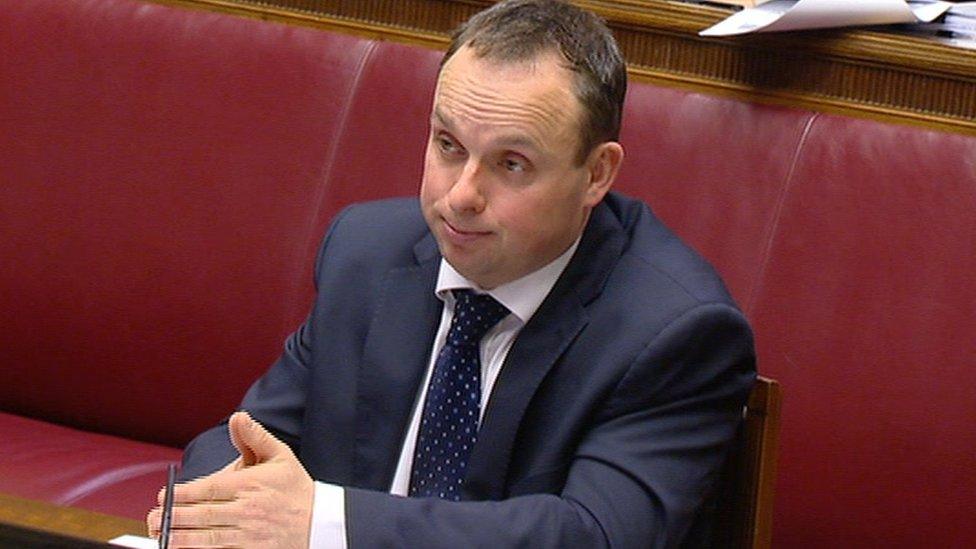Arlene Foster denies there was 'party narrative' over RHI
- Published
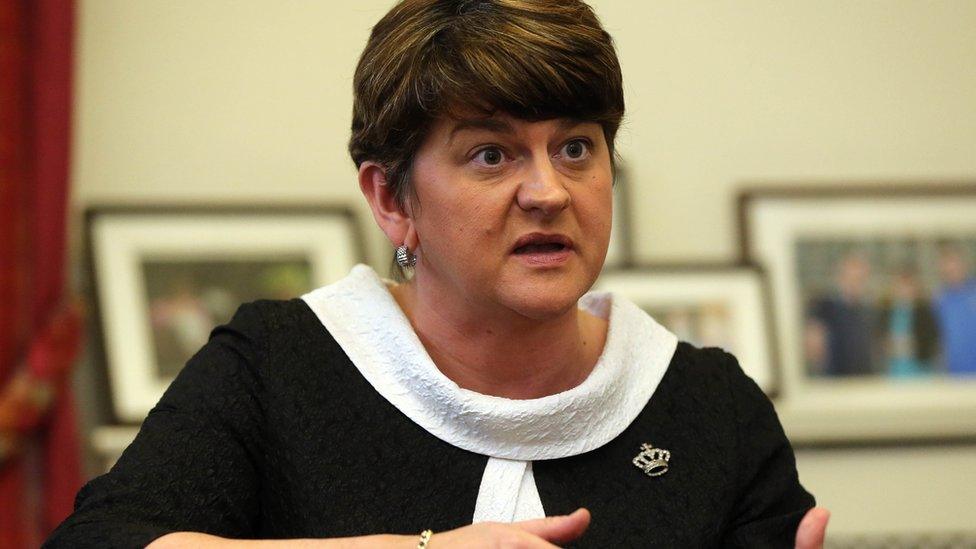
Arlene Foster has been the leader of the Democratic Unionist Party (DUP) since December 2015
Arlene Foster has denied claims there was a "party narrative" by the DUP to discredit former minister Jonathan Bell in the fallout over the RHI scheme.
The DUP leader's witness statement to the inquiry has just been published.
She is due to give evidence again on Tuesday.
The inquiry has already heard allegations that a former DUP adviser was prepared to fit his story with the party's narrative when the scandal emerged in December 2016.
That led former enterprise minister Jonathan Bell to claim he had been the victim of a "smear campaign" orchestrated by the DUP, when he went public in an interview with the BBC in late 2016, alleging he had been pressured by DUP special advisers (Spads) to keep the RHI scheme open when he tried to bring it under control.
Asked to give her view in her witness statement, Mrs Foster said she believed there "was no party narrative".
The inquiry has seen a text message Timothy Cairns sent to another DUP Spad Richard Bullick, in December 2016, saying he believed Jonathan Bell "needs to be exposed" for his behaviour as a minister", but "I can't expose my part without putting the boot into PR" (Peter Robinson).
Mrs Foster said she was not aware of the message and could not "be sure what Timothy Cairns meant when he said "exposed".
'Prevailing view'
The inquiry has also heard claims from another witness and Arlene Foster's former Spad when she was finance minister, Andrew Crawford.
He resigned after he was named by a senior Stormont official as being involved in the decision to delay cost controls to the scheme in summer 2015.
The delay led to the biggest spike in applications and did the most damage to the public purse.
In his evidence, Mr Crawford said he was disappointed at how his party had handled the matter and he felt "expendable", while the party was "quick to defend" another Spad, Timothy Johnston from criticism.
In her witness statement, Mrs Foster was asked if the party narrative involved "deflecting attention away" from the involvement of DUP Spads, especially Mr Johnston, in the delay to introduce cost controls.
She said while there was no party narrative, she did believe there was a "prevailing view that Timothy Johnston was not involved" in delaying cost controls.

Who is Arlene Foster?
Northern Ireland's former first minister, Arlene Foster, headed up the Department of Enterprise, Trade and Investment (Deti) when the RHI scheme was designed in 2012.
Crucial controls to limit the scheme's cost were not introduced, something she has since said is her "deepest political regret".
But the DUP leader fiercely contested claims by Jonathan Bell - her party colleague and successor as enterprise minister - that she ordered him to keep the scheme open.
In the wake of his allegations, she faced calls to step aside to allow a judge-led public inquiry into the scheme.
In the end, her time as first minister was brought to an abrupt end when the late Martin McGuinness resigned as deputy first minister, forcing an election last March.
She remains DUP leader, but there has been no return to Stormont for almost 600 days, due to the ongoing impasse between her party and Sinn Féin.

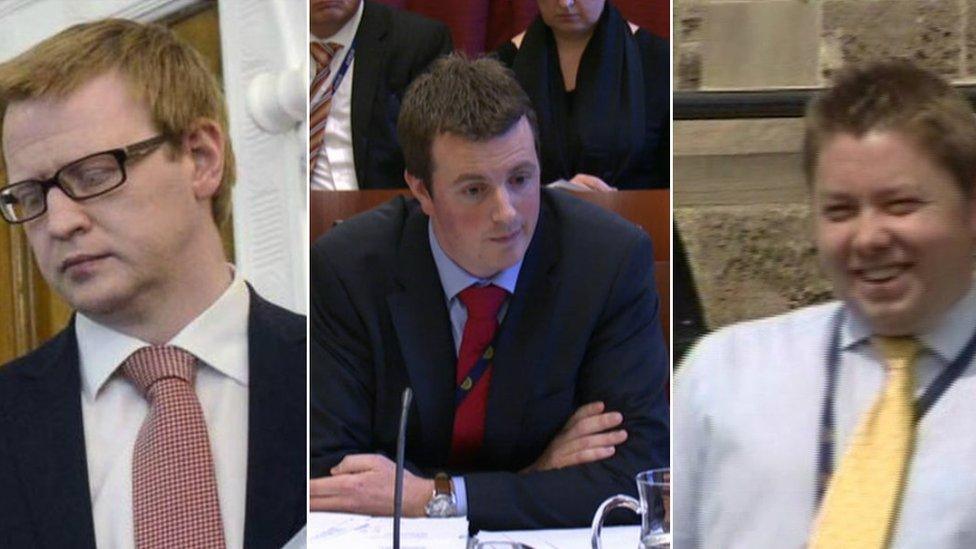
Three former DUP special advisers will appear before the RHI inquiry later this week
The inquiry has already heard claims Mrs Foster was told her most senior adviser was involved in delaying RHI cost controls, a day before she told the BBC he had no role.
In December 2016, Arlene Foster was asked by Stephen Nolan whether Timothy Johnston, who is now the DUP's chief executive, had any role in delaying subsidy cuts.
She said he had not, but in his evidence, Timothy Cairns said he told her of Mr Johnston's role the day before.
Mr Cairns set out Mr Johnston's role in a conference call to which Mrs Foster and Mr Johnston and another DUP Spad Richard Bullick were all parties.
In her witness statement, Mrs Foster was asked if she spoke to Mr Johnston about any involvement he had.
'No role whatsoever'
Mr Johnston has denied the claims, and Mrs Foster said she believed him.
She said they spoke "subsequent to his being named in the Nolan interview".
"While I did not believe the allegations made against him, he nevertheless assured me that he played no role whatsoever in the timing of the introduction of cost controls," she added.
Arlene Foster is likely to face questions about the role Mr Crawford played in the RHI scheme, whether he sought to delay cost controls at the orders of the DUP.
In her witness statement, she has said she knew he was working with others in the party on energy issues in summer 2015, but was not clear on the details.
She said she never asked and was never told.
A senior civil servant had suspicions about Mr Crawford's role and had told then-Economy Minister Simon Hamilton and senior party officials in autumn 2016.
But Mrs Foster has said it was December 2016 before Andrew McCormick told her.
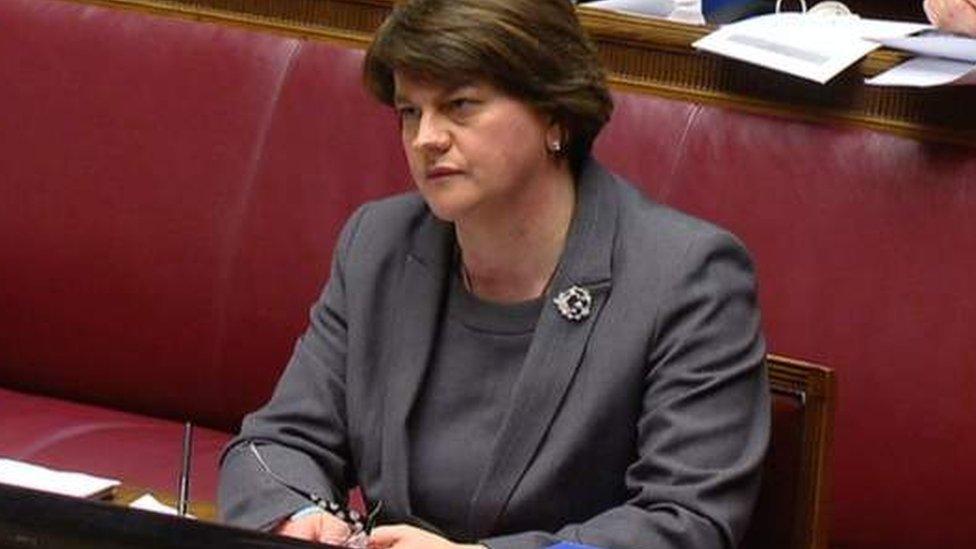
The DUP leader and former first minister made her first appearance in front of the RHI inquiry in April
Monster 'metaphor'
The inquiry has also received evidence from David Gordon, external, who was heading communications for the Executive Office when failures with the RHI scheme came to public attention.
He has addressed what he describes as "erroneous allegations" made by Jonathan Bell, who told the inquiry Mr Gordon had referred to him in an email as a "monster who needed to be put to sleep" and that he was briefing against him.
Mr Gordon has insisted he was not trying to do that to Mr Bell, in relation to his role in the RHI scandal.
He said his suggestion that it might be time former first minister Peter Robinson, referred to as Frankenstein, "put his monster to sleep" was a metaphor and a joke that had been misinterpreted.
Mr Gordon said: "Clearly, an attempt at humour in a private email does not remotely constitute evidence of briefing against Mr Bell, let alone a conspiracy."
"I was not suggesting that Mr Robinson had fathered Mr Bell or created him in a lab. Nor was I proposing that the former first minister or anyone else should actually put him to sleep," he added.
"Similarly, I was not claiming or briefing that Mr Bell was actually a monster."
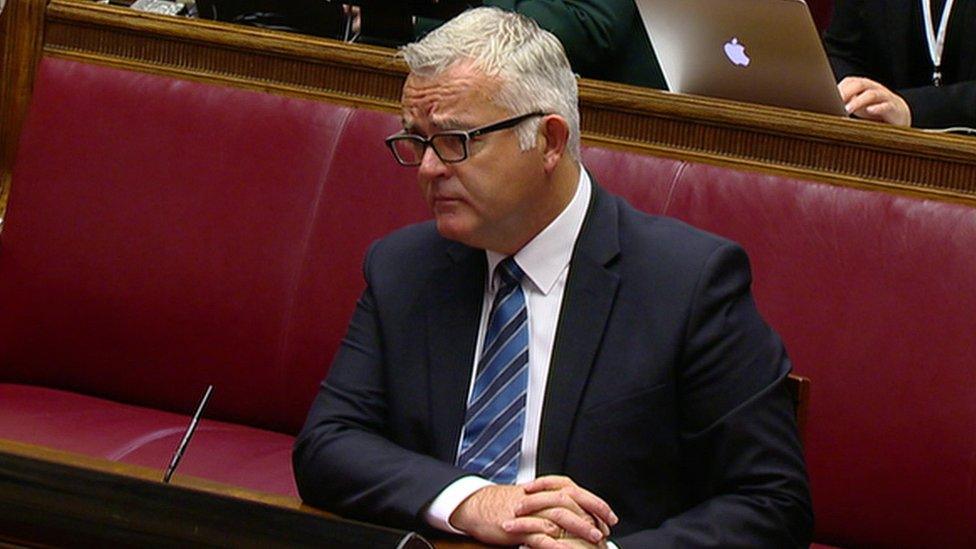
Jonathan Bell had claimed senior figures in the DUP and Executive Office were briefing against him when he went public about RHI in late 2016
Mr Gordon added that "a media briefing along the lines imagined by Mr Bell would frankly have been ridiculous".
"I cannot imagine a journalist taking any such "monster" suggestion remotely seriously. It would have been met with derision, and rightly so."
'Deflect attention'
Mrs Foster also said it was not her view that Spads were "running the show" at Stormont, in contrast to claims made by Mr Bell that unelected Spads were taking many decisions during devolution, despite their primary role being to advise ministers, not issue decisions.
The DUP leader's witness statement also makes reference to the internal DUP investigation the party carried out following Mr Bell's allegations that Spads in the party had thwarted him from closing the scheme.
She said she appointed another of her senior Spads, Richard Bullick, to carry out inquiries over the course of a weekend - and she was only involved in asking him to tell her what he had found.
He had found no evidence to substantiate the claim, Mrs Foster said.
Mr Bullick, who submitted three witness statements to the inquiry that were also published on Monday, external, said there was no party narrative and there had also been "no attempt to deflect attention" from Spads.
He also makes the point that the focus on what Spads said or did "entirely misses the point" that the decision about RHI was for the minister, Jonathan Bell, to take.
In addition to Mrs Foster, three senior DUP officials will also be giving evidence to the inquiry this week - former Spad and current DUP director of communications, John Robinson, on Wednesday; former Spad Stephen Brimstone on Thursday and former Spad and current DUP chief executive, Timothy Johnston, on Friday.

What is the Renewable Heat Incentive scheme?
The Renewable Heat Incentive (RHI) scheme was established by the Northern Ireland Executive to encourage uptake of eco-friendly heat systems over the use of fossil fuels.
However, an overgenerous offer of fuel subsidies meant it could cost taxpayers an extra £490m.
A public inquiry was set up into the flawed green energy scheme in January 2017.

- Published21 September 2018
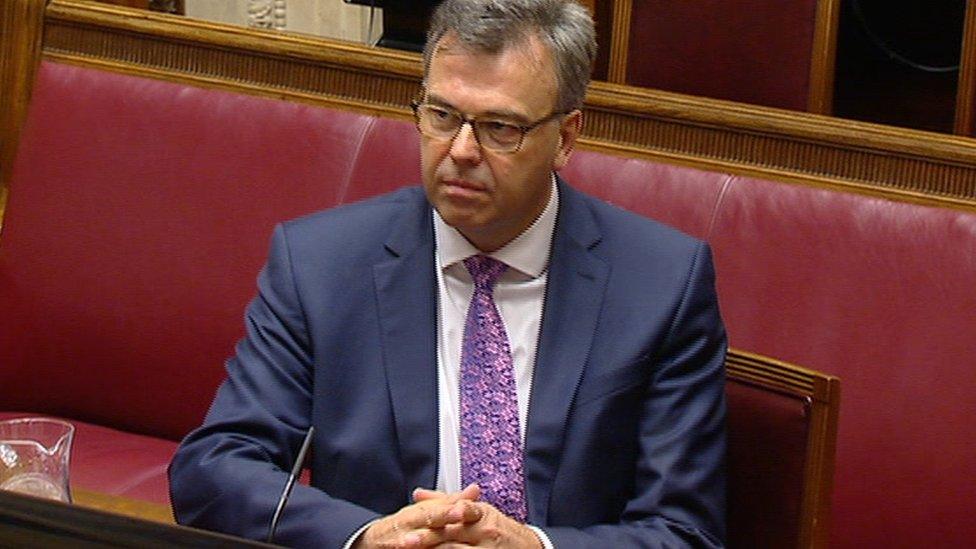
- Published20 September 2018
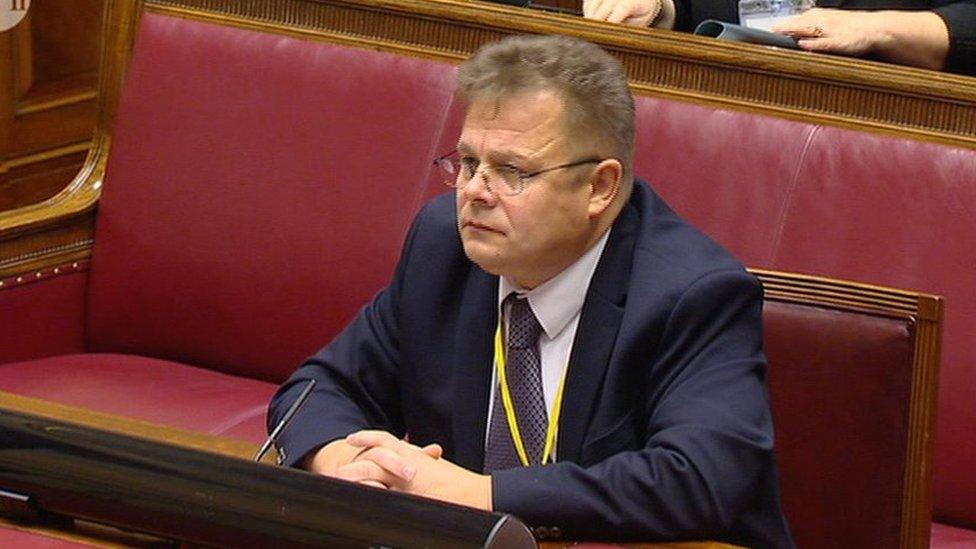
- Published14 September 2018
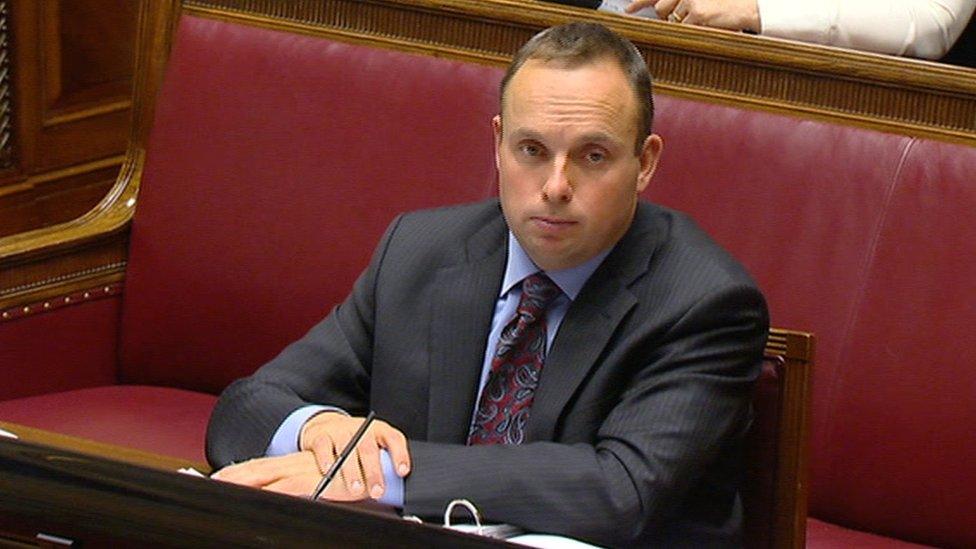
- Published13 September 2018
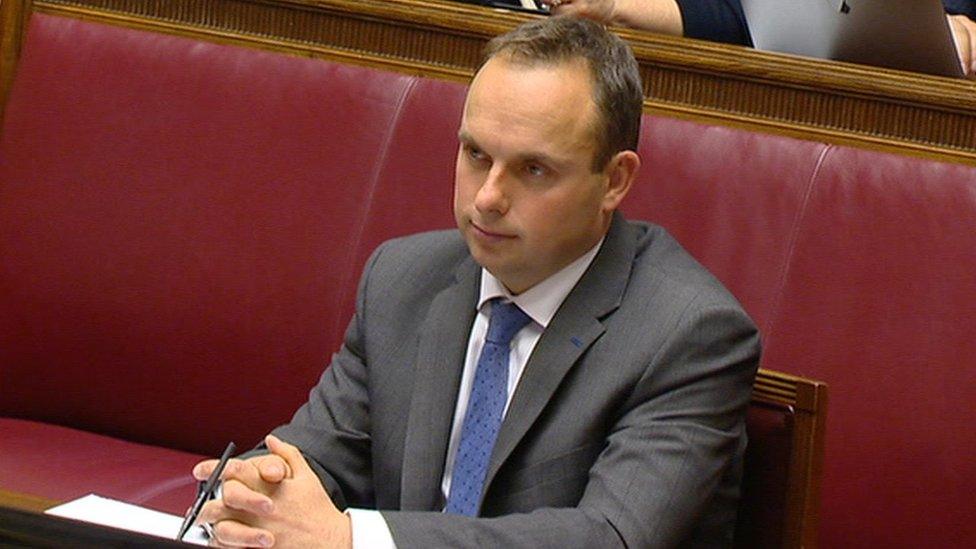
- Published12 September 2018
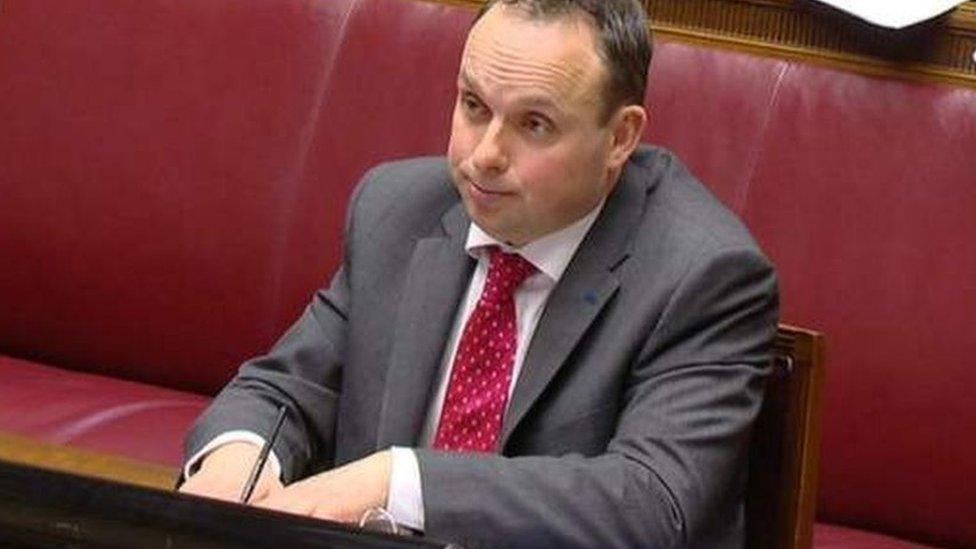
- Published11 April 2018
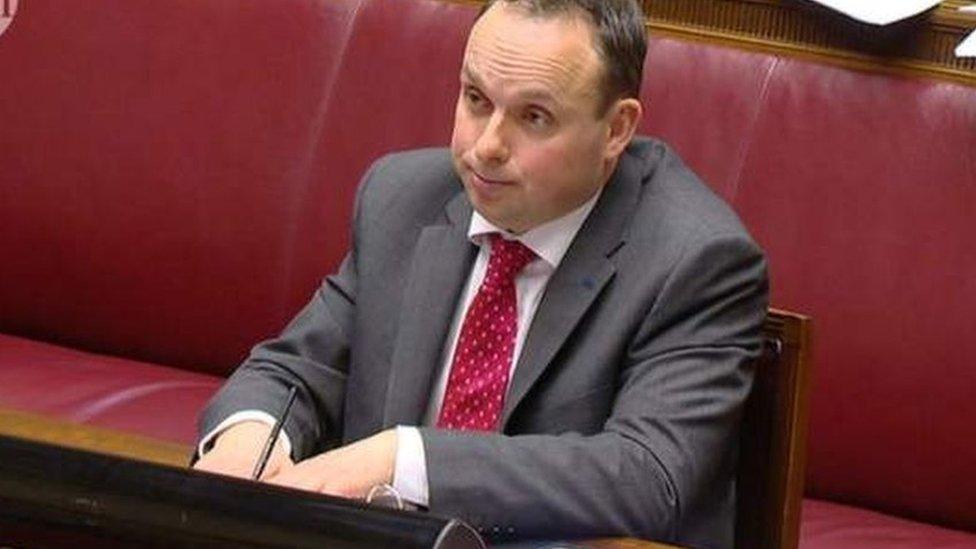
- Published11 September 2018
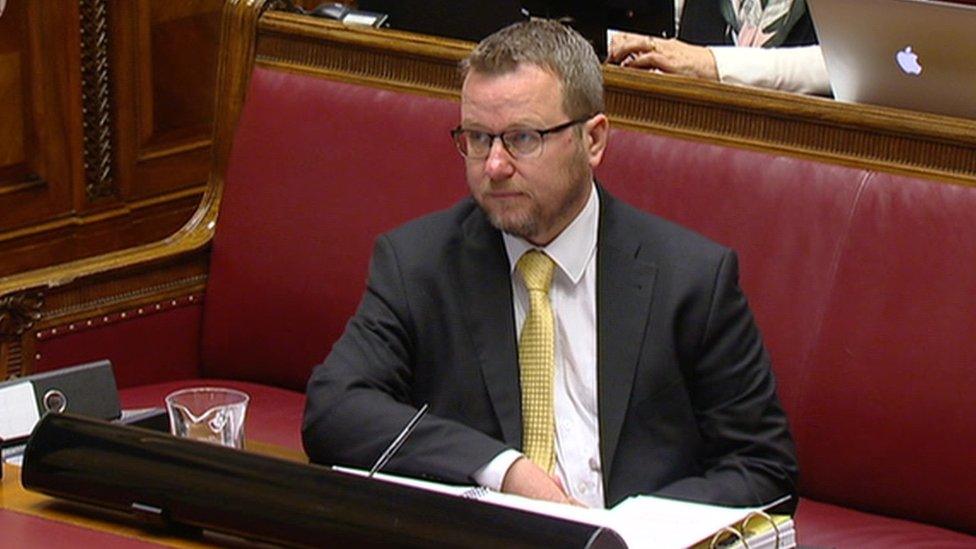
- Published11 September 2018
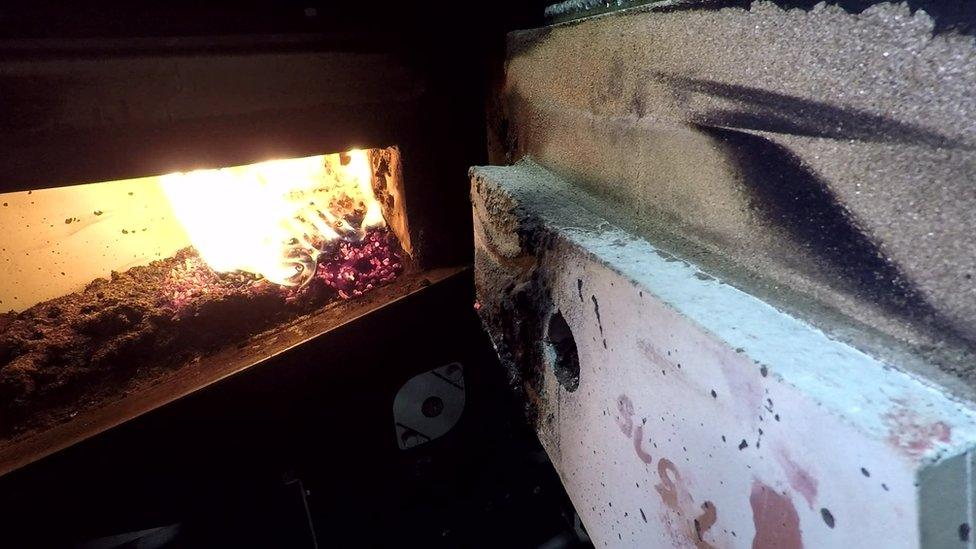
- Published7 September 2018
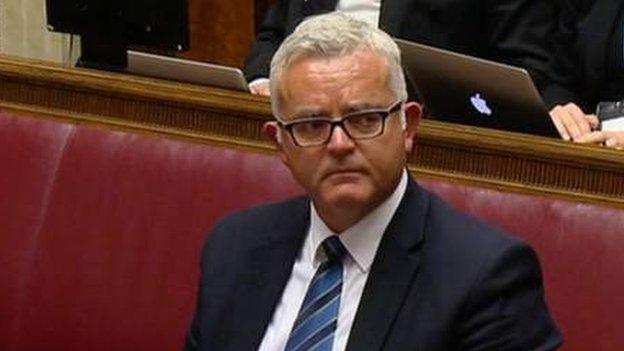
- Published7 September 2018
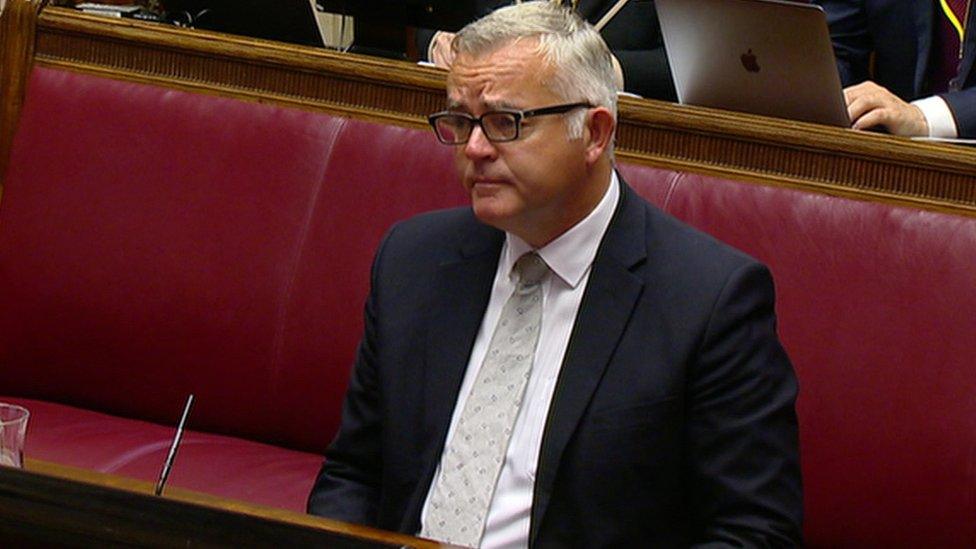
- Published5 September 2018
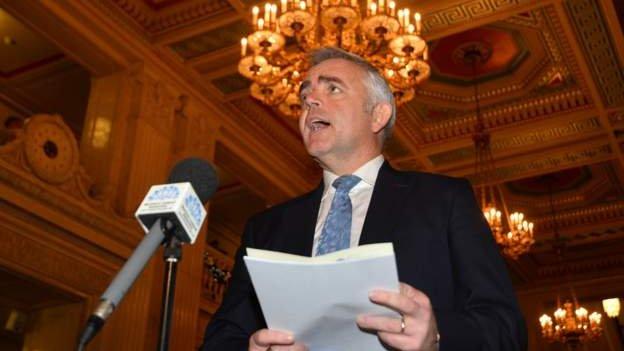
- Published5 September 2018
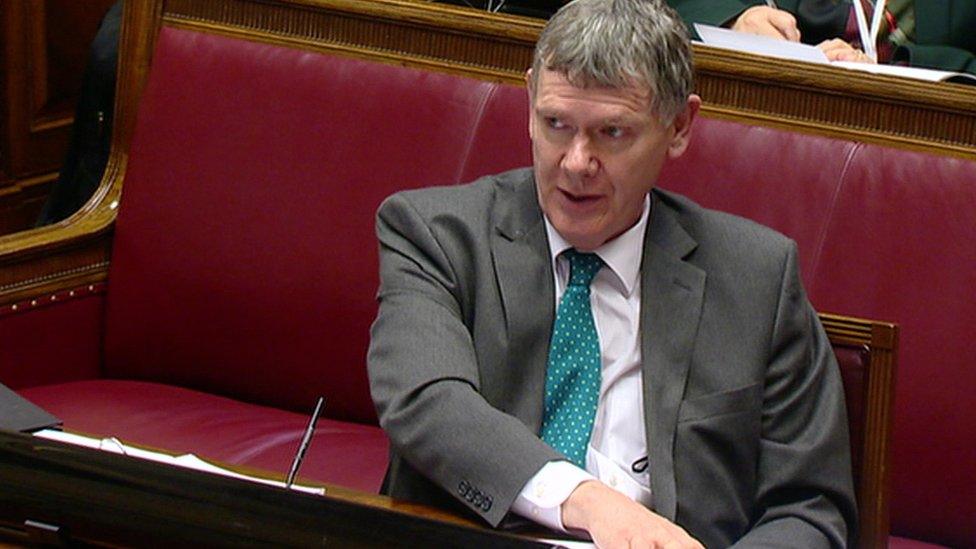
- Published5 September 2018
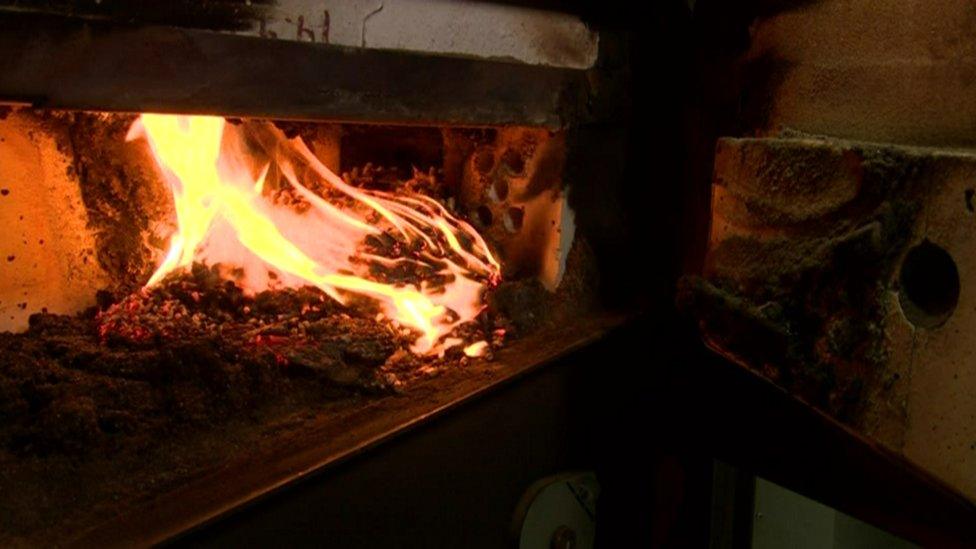
- Published13 March 2020
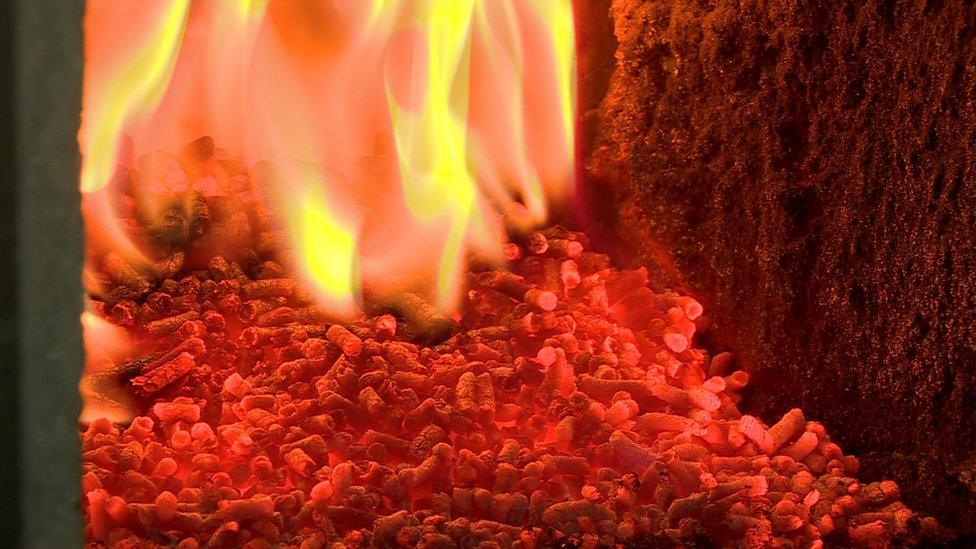
- Published4 September 2018
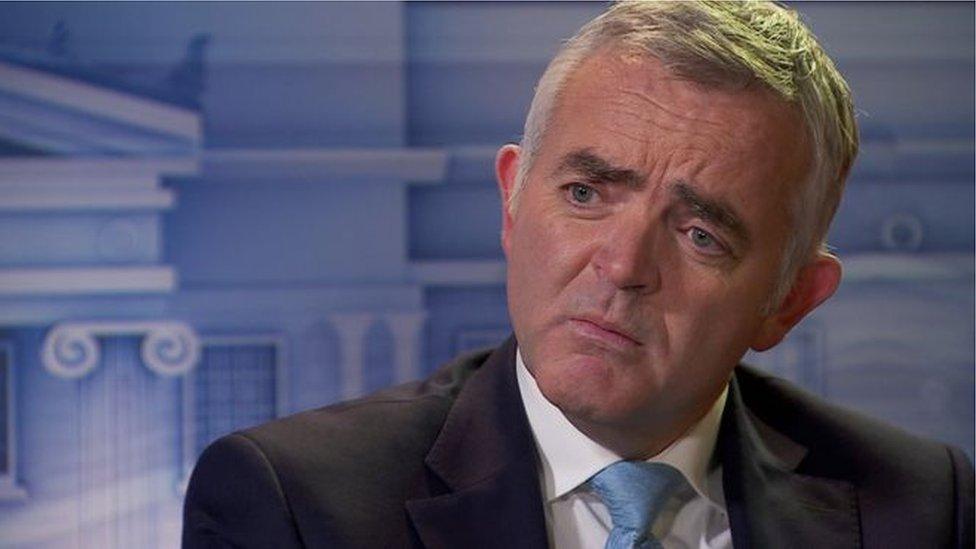
- Published17 April 2018
